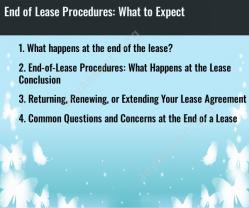How long does it really take to buy a house?
The timeline for buying a house can vary depending on a variety of factors, including your individual circumstances, the local real estate market, and the specific steps involved in the home-buying process. However, here's a general timeline to give you an idea of how long it typically takes to buy a house:
Pre-Approval (1-2 weeks):
- Before you start looking for a home, it's a good idea to get pre-approved for a mortgage. This process typically takes a few days to a couple of weeks. It involves providing financial documentation to a lender who will then determine how much you can afford to borrow.
Home Search (varies):
- The length of your home search can vary widely depending on how quickly you find a property that meets your criteria. Some buyers may find their dream home in a few weeks, while others may search for several months.
Making an Offer (1-2 days to a few weeks):
- Once you find a home you want to buy, you'll make an offer to the seller. The negotiation process can be quick or take some time, depending on the market conditions and the seller's response.
Contract and Inspections (2-4 weeks):
- After your offer is accepted, you'll enter into a purchase agreement. During this period, you typically have a certain number of days to conduct inspections, secure financing, and review the contract. This process can take a few weeks.
Mortgage Approval (2-4 weeks):
- Getting your mortgage approved involves various steps, including underwriting and verification of your financial information. It can take several weeks to finalize your loan.
Closing (4-6 weeks):
- The closing process typically takes about 4-6 weeks from the time your offer is accepted. During this time, various tasks are completed, such as the title search, appraisal, and finalizing the mortgage. You'll also need to secure homeowners insurance.
Final Walkthrough (1 day):
- Just before closing, you'll have a final walkthrough of the property to ensure it's in the same condition as when you made the offer.
Closing (1-2 hours):
- The closing day involves signing a lot of paperwork and transferring ownership of the property. This usually takes 1-2 hours.
The entire home-buying process can take anywhere from a few months to several months, depending on the specific circumstances. It's important to work with a real estate agent and a mortgage lender to guide you through the process and keep it on track. Be prepared for potential delays and unforeseen issues that may arise, which could extend the timeline. Additionally, local regulations and market conditions can impact the overall duration of the process.
How long does it typically take to complete the process of buying a house?
The amount of time it takes to buy a house can vary depending on a number of factors, including the current real estate market, the type of loan you're getting, and the complexity of the transaction. However, on average, it takes around 45-60 days to close on a home once you've had an offer accepted.
What is the timeline for purchasing a home from start to finish?
Here is a general timeline for purchasing a home from start to finish:
- 1-2 weeks: Get pre-approved for a mortgage. This will give you an idea of how much money you can borrow and what your monthly payments will be.
- 2-4 weeks: Find a home that you want to buy. This may involve working with a real estate agent or searching online listings.
- 1-2 weeks: Make an offer on the home. If your offer is accepted, you and the seller will sign a purchase contract.
- 30-60 days: Close on the home. This is when you will sign all of the final paperwork and officially become the new owner of the home.
Can you outline the various stages and steps involved in buying a house?
The homebuying process can be broken down into the following stages and steps:
- Get pre-approved for a mortgage. This is an important first step, as it will give you an idea of how much money you can borrow and what your monthly payments will be. You can get pre-approved for a mortgage through a bank, credit union, or mortgage broker.
- Find a real estate agent. A real estate agent can help you find homes that meet your needs and budget, and can negotiate on your behalf when you make an offer.
- Start your home search. Once you have a real estate agent, you can start your home search. This may involve looking at online listings, attending open houses, or driving around neighborhoods that you're interested in.
- Make an offer on a home. Once you've found a home that you want to buy, you'll need to make an offer. Your real estate agent can help you determine a fair price and can draft an offer letter for you.
- Negotiate with the seller. Once you've made an offer, the seller may negotiate with you on the price or other terms of the contract. This process can take a few days or even a few weeks.
- Get a home inspection. Once your offer has been accepted, you'll need to schedule a home inspection. A home inspector will look for any potential problems with the home, such as structural defects or safety hazards.
- Get a mortgage appraisal. Your mortgage lender will order an appraisal to determine the value of the home. This is to make sure that you're not borrowing more money than the home is worth.
- Close on the home. Once all of the contingencies have been met, you'll be ready to close on the home. This is when you'll sign all of the final paperwork and officially become the new owner of the home.
What factors can affect the duration of the homebuying process?
The following factors can affect the duration of the homebuying process:
- The current real estate market. If the market is competitive, it may take longer to find a home and get an offer accepted.
- The type of loan you're getting. If you're getting a conventional loan, the process may be faster than if you're getting a government-backed loan, such as an FHA or VA loan.
- The complexity of the transaction. If there are any complications with the home or the sale, such as title problems or repairs that need to be made, it may take longer to close.
How to expedite or streamline the process of acquiring a new home?
There are a few things you can do to expedite or streamline the homebuying process:
- Get pre-approved for a mortgage before you start your home search. This will save you time and frustration when you make an offer on a home.
- Be prepared to act quickly. In a competitive market, homes can sell quickly. Be ready to put in an offer as soon as you find a home that you're interested in.
- Work with a qualified real estate agent. A good real estate agent can help you find homes that meet your needs and budget, and can negotiate on your behalf when you make an offer.
- Be flexible with your closing date. If you're able to be flexible with your closing date, it may make you more attractive to sellers.
It's also important to be patient and realistic about the homebuying process













